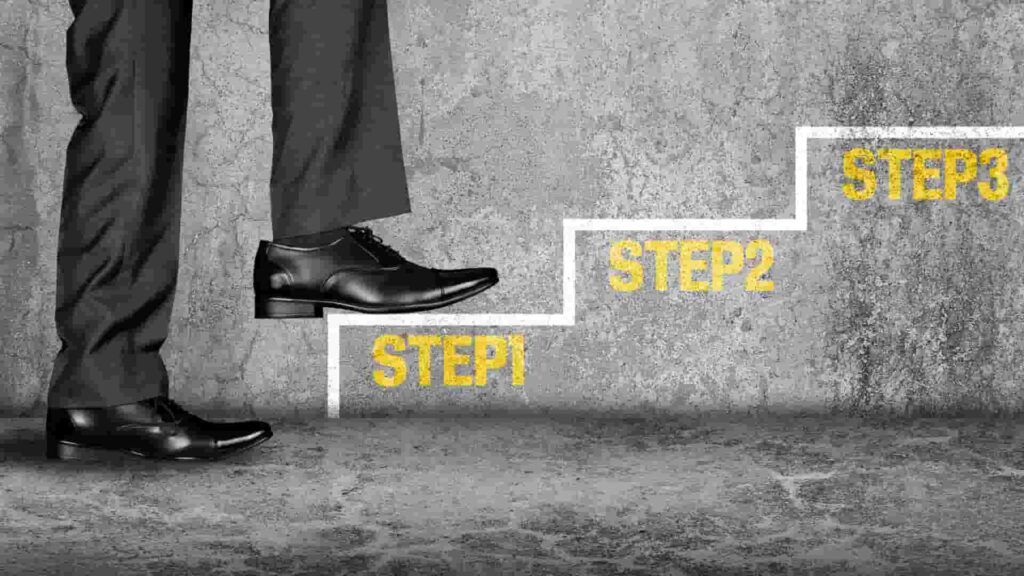A Brief Introduction
Chartered Accountancy (CA) is one of the most prestigious professional qualification that opens up numerous career opportunities in the finance and accounting field.
The CA course is regulated by the Institute of Chartered Accountants of India (ICAI), a statutory body created under the Chartered Accountants Act, 1949. Candidates have the option to pursue the Chartered Accountant course either through the Foundation Course Route or Direct Entry Route under the Scheme of Education and Training.
Individuals pursuing a CA qualification receive intensive training in financial accounting, auditing, taxation, and financial management. The course in India is popular due to its high demand, lucrative benefits, and numerous opportunities in a rapidly growing economy.
Career Scope as Chartered Accountancy (CA)

The scope for CAs in India is enormous. They have a wide range of career opportunities in various fields like auditing, financial reporting, taxation, consultancy, and many more. CAs get opportunities in various job roles such as Finance Manager, Auditor, Investment Banker, Chief Financial Officer, Tax Consultant, etc.
CAs can even start their own consultancy firms and provide personalised service to various clients. With the ever-increasing demand for financial expertise, CAs have a great career not only in India but also abroad.
Role & Responsibilities of Chartered Accountancy (CA)
Chartered Accountants play significant roles in the field of finance and accounting. Some of the key roles and responsibilities of a CA include:
- Assisting clients in ensuring compliance with tax laws and representing them before government agencies.
- Performing financial audits to evaluate the organisation’s financial status.
- Identify and address fraud, and financial irregularities.
- Provide guidance to clients on opportunities for business improvement.
- Ensure that companies comply with all legal requirements and internal processes.
- Offer advice to clients on tax planning, financial risks, business acquisitions, mergers, and other related areas.
- Create and manage financial statements and budgets.
Employment Scope Career Options for Chartered Accountancy (CA)
Every revenue-generating business needs a chartered accountant to handle finances and taxes. So, CA’s are always in high demand across various industries. Even individuals in high-income brackets need CA’s to manage their finances efficiently. Hence, CA’s can even offer personalized services to high-net-worth individuals as financial advisors or consultants.
Some of the recruiting Companies for CA are:
Top MNCs such as Grant Thorton, Deloitte, E&Y, KPMG, BDO, PwC, etc.
Indian firms such as JS Sundaram & Co, Lodha & Co, Bajaj Finserv & Group, S. Aiyar & Co, etc
Banks such as Kotak Mahindra, Standard Chartered, Axis, SBI, Federal Bank, etc
Career scope for Chartered Accountancy (CA) in Govt & PSU sector
In addition to the private sector, Chartered Accountants can also pursue opportunities in government and public sector undertakings (PSUs). Chartered Accountants have the opportunity to work in different government departments like the Income Tax Department, Audit Departments, Public Sector Banks, Insurance Companies, and more.
Government agencies such as the Comptroller and Auditor General of India (CAG), Reserve Bank of India (RBI), and Securities and Exchange Board of India (SEBI) also hire CA professionals for various roles.
Salary Range

The salary range for Chartered Accountants varies depending on factors such as experience, designation, area of specialisation, location, and employer.
Entry-level Chartered Accountants can earn between 6 to 8 lacs per annum, while experienced CAs working in top firms can earn salaries exceeding 20 lacs per annum. The salary structure for Chartered Accountants in government and PSU sectors depends upon the respective pay scales and can vary depending on the position and rank.
International auditing firms may offer salary packages much higher than the local firms.
Steps to Become a Chartered Accountant (CA)

The first step towards enrolling for a CA course is to meet the eligibility criteria.
- Candidates need to fill an application and then register for the CPT exam (Foundation course). Candidates can enrol in the Foundation course after 12th grade.
- After clearing the Foundation exams, candidates can register for the Intermediate level.
- Once the Intermediate level is cleared, candidates need to undergo the articleship program to gain practical experience.
- After completing the articleship, the final step is to enrol for the Final level exams.
- Students who clear the Final exams can then apply for the membership with the ICAI accounting body for certification.
Note: Graduate/Post graduates can directly enrol for Intermediate level without appearing for the Foundation level exams.
Course Duration
The CA course does not have a set duration. The duration of completing the CA Course differs for each individual depending on the number of exam attempts needed to pass.
A candidate who passes all exams on the first attempt can complete the course in five years, starting after the 12th grade. Students who are admitted through direct entry can complete the course in 4.5 years.
Below is a summary of the total duration.
Level | Duration |
CA Foundation | 6 months |
CA Intermediate | 10 months |
Articleship | 3 years |
CA Final | 8 months |
Eligibility Criteria

To become a Chartered Accountant in India, candidates must meet the following eligibility criteria
Course Stage | Eligibility Criteria |
CA Foundation | Passed 12th or HSC from a recognized board |
Commerce graduates/postgraduates with at least a 50% aggregate score can apply. | |
Non-Commerce graduates/postgraduates with at least a 55% aggregate score can apply. | |
CA Intermediate | Those students who have cleared the CA Foundation level, unless direct entry |
Commerce graduates with a minimum of 55% marks | |
Non-commerce graduates securing 60% marks | |
Articleship | Students who have completed one of the two groups of CA Intermediate level |
Students who have undergone ICITSS training | |
Articleship starts with inter-registration for direct-entry students | |
CA Final | Students who cleared both groups of CA Intermediate level |
Students who have completed 2.5 years of practical training |
Chartered Accountancy (CA) Course Level
The Chartered Accountancy (CA) course is divided into four levels: CA Foundation, CA Intermediate, Articleship, and CA Final.
CA Foundation Course
The CA Foundation course is the entry-level program for aspiring Chartered Accountants. It can be pursued following the completion of 12th-grade exams. Graduate students can skip the Foundation level and directly enrol for the Intermediate level.
The CA Foundation Syllabus teaches students about accounting principles and their impact on different types of accounts.
CA Intermediate Course
The CA Intermediate course is the second level of the Chartered Accountancy program. You can enrol for the CA Intermediate course after clearing the CA Foundation exam or if you are a graduate. This level consists of six papers grouped in 2 sets of 3 subjects each.
Students can choose to attempt either one of the two groups, or both groups simultaneously, in a single attempt. It should be noted that ICAI will only assign a rank to students who choose to attempt both groups in a single sitting.
CA Articleship
After completing the CA Intermediate level, candidates are required to undergo a articleship training program. The new scheme have reduced the duration of articleship from 3 years to 2 years for the CA Intermediate course.
The articleship helps students to gain practical experience and valuable insights in the accountancy field.
Also, students are required to become members of ICAI while undergoing the training program.
During this training period, senior CAs supervise the students and help them gain work experience. These practical work experience helps students to apply the theoretical knowledge to practical skills, thus enabling them to cope up with the professional challenges.
CA Final Course
The CA Final exam is one of the toughest exams with a low pass rate in the country. The syllabus includes topics such as Risk Management, International Finance Laws, Financial Management, Advanced Auditing, and other subjects within the CA syllabus.
This level has 6 subjects, divided into two groups. Each group consists of 4 subjects.
Students have the option to attempt either group individually or both at the same time. Students attempting both groups simultaneously will be eligible for ranks from ICAI.
CA Curriculum In India
The Chartered Accountancy course in India focuses on developing graduates with problem-solving abilities, financial expertise, and a solid accounting background.
Listed below is some of the topics covered under CA syllabus:
Company accounts
Business Economics
Final accounts for Sole proprietors
Accounting Process
Financial statements of Not-for-profit organisations
Common business terminologies
Bank Reconciliation Statement
Theory of Production and Control, etc
Exam Papers, Patterns, and Other Details
The CA exams are held twice a year, in May and November. The Institute of Chartered Accountants of India (ICAI) sets the exam papers for each level, covering topics in accounting, finance, taxation, and auditing. The pattern of the exam papers varies for each level.
Below listed are the various papers according to the levels.
Foundation Level
The exam consists of four subjects worth 100 marks each. Each subject has a duration of 3 hours.
Paper Numbers 1 & 2 will consist of subjective type questions, while Paper Numbers 3 & 4 will contain objective type questions.
Paper 1 | Accounting |
Paper 2 | Business Laws |
Paper 3 | Quantitative Aptitude |
Paper 4 | Business Economics |
Intermediate Level
The Intermediate Exam is comprised of 3 papers in two groups, each carrying 100 marks and with a prescribed time limit of 3 hours for each exam.
GROUP 1 | |
Paper 1 | Advanced Accounting |
Paper 2 | Corporate and Other Laws |
Paper 3 | Taxation |
GROUP 2 | |
Paper 4 | Cost and Management Accounting |
Paper 5 | Auditing and Ethics |
Paper 6 | Financial Management and Strategic Management |
The CA Intermediate exams are conducted in May and November. The papers contain both multiple-choice and subjective questions. There is a 30-mark multiple-choice question section with no negative marking.
Candidates can choose to attempt either one or both groups in the examination. However, an All India Rank is given to only those students who clear both the groups simultaneously and achieve a top 50 ranking among all candidates in the country.
To qualify for the Intermediate examination, an aspirant must achieve a minimum of 40% in each subject and an overall aggregate of 50%.
Suppose a candidate takes an examination for both groups and meets the minimum passing marks in all subjects in one or both groups but fails to meet the overall total in one group. In that case, the excess marks from the other group can be used to compensate. However, if a student’s grades in a particular group do not meet the aggregate criteria. In that case, they are considered to have failed that group and will need to retake the necessary assessment.
Final Examination
The Final exam in Chartered Accountancy consists of six papers, each worth 100 marks. The papers are divided into two groups. The exam for each subject has a duration of 3 hours. The duration of paper 6 is 4 hours.
GROUP 1 | |
Paper 1 | Financial Reporting |
Paper 2 | Advanced Financial Management |
Paper 3 | Advanced Auditing, Assurance and Professional Ethics |
GROUP 2 | |
Paper 4 | Direct Tax Laws and International Taxation |
Paper 5 | Indirect Tax Laws |
Paper 6 | Integrated Business Solutions |
The CA final exams are conducted twice a year in May and November. All the papers have a 30-mark multiple-choice question section. The good thing is there is no negative marking.
Candidates can choose to attempt either one or both groups of the examination. However, an All India Rank is given to only those students who clear both the groups simultaneously.
To qualify for the Intermediate examination, an aspirant must achieve a minimum of 40% in each subject and an overall aggregate of 50%.
Suppose a candidate takes an examination for both groups and meets the minimum passing marks in all subjects in one or both groups but fails to meet the overall total in one group. In that case, the excess marks from the other group can be used to compensate. However, suppose a student’s grades in a particular group do not meet the aggregate criteria. In that case, they are considered to have failed that group and will need to retake the necessary assessment.
The registration for the CA Exam at all levels is valid for a specific period. During this time, CA students must complete their required training and pass their exams. The registration for the CA Final Exam remains valid for 10 years.
Top Colleges for Chartered Accountancy (CA)
There are several institutes or colleges in India that offer online, part-time, or full-time classes to aspiring CA students. These colleges offer programs to both undergraduate and postgraduate students.
Below listed are some of the top CA colleges in India:
Zell Education Mumbai
Indian Institute of Finance and Accounts, Pune
CMS For CA, Hyderabad
International School of Financial Studies, Secunderabad
Vista Academy, Dehradun
Navkar Institute, Ahmedabad
The Institute of Chartered Accountants of India (ICAI), Noida, etc
Fees for Chartered Accountancy (CA) Course
The fees of the CA course in India varies depending upon the institute or the coaching classes. The overall cost can be between 70,000 to 3 lacs.
The fees to be paid for registration is as follows:
- CA Foundation: INR 11300
- CA Intermediate: INR 20700 for both groups
- CA Final: 39800 for both groups
The total cost can vary depending upon whether you clear the exam in the first attempt or need to retake the exams.
Conclusion
CA course need immense hard work, dedication toward studies, and a strong understanding of financial concepts. Also, the Chartered Accountant (CA) designation is recognized worldwide for its expertise and plays a crucial role in enhancing and preserving organizational financial well-being. Additionally, with the increase in FinTech companies in India, Chartered Accountants have the opportunity to expand their areas of expertise.



